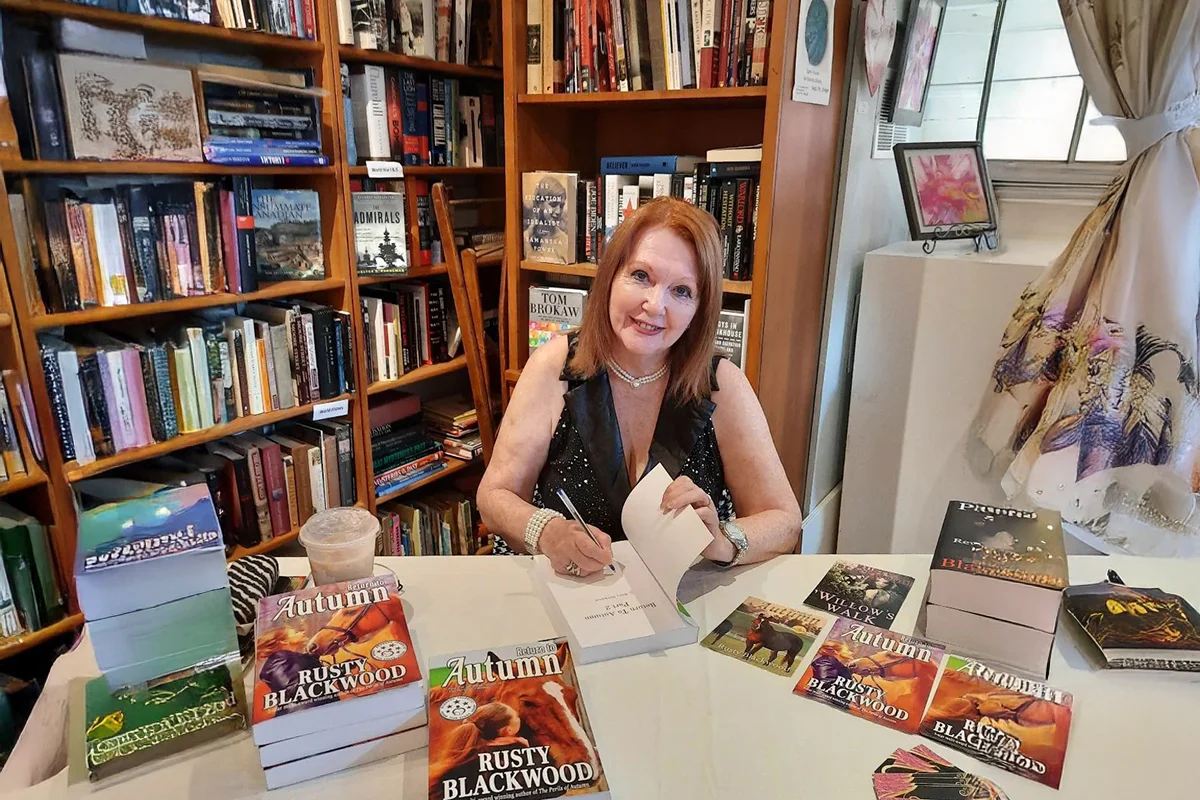PHOTO: Susan Coll, author of Real Life & Other Fictions, shares the humor and heart behind her literary inspiration.
Exploring Surreal Humor, Literary Life, and Bookstore Inspirations
Susan Coll reflects on blending myth with reality in Real Life & Other Fictions, her creative process, bookstore influences, quirky characters, and how humor naturally emerges from even the darkest themes.
Susan Coll, the acclaimed American novelist known for her sharp wit and layered storytelling, continues to enrich the literary world with her latest novel, Real Life & Other Fictions. Throughout a career that spans seven novels, Coll has masterfully blended comedy and tragedy, exploring the eccentricities of the human experience with warmth and insight.
In a recent interview with Reader’s House, Coll offered a behind-the-scenes look at her writing process and creative inspirations. Her body of work, which includes Bookish People, The Stager, and the widely celebrated Acceptance—adapted into a television movie starring Joan Cusack—reflects a profound understanding of contemporary life and a rare ability to translate its contradictions into compelling fiction.
Susan Coll is a masterful storyteller whose wit, insight, and emotional depth make her one of America’s most compelling contemporary novelists.
In Real Life & Other Fictions, Coll draws inspiration from the folklore surrounding the Mothman—a creature said to have appeared before several historic disasters, including the 1967 bridge collapse in Point Pleasant, West Virginia. That juxtaposition of tragedy and the campy mystique now surrounding the legend became fertile ground for narrative exploration. Coll chose to tell the story through the eyes of a woman orphaned by the disaster, blending surreal humor and mystery to explore how communities process loss and myth.
“I’ve never been sure if it’s a gift or a curse,” Coll said, “but no matter how tragic the subject, I wind up injecting humor into the narrative.” That instinct, evident throughout her work, keeps her fiction fresh and emotionally resonant.
Coll’s long-standing connection to the literary community extends far beyond her novels. For nearly a decade, she has worked at the famed Politics and Prose Bookstore in Washington, D.C.—a setting that has both inspired her writing and kept her grounded. “It’s just a book, after all, an object that is logged into our inventory system and sold—or not sold—on the salesfloor,” she explained. “Counterintuitively, I find this takes the pressure off the outcome for me.” Her tenure as board president of the PEN/Faulkner Foundation also contributed to her next project: a novel titled The Literati, set within a literary nonprofit.
That ability to find inspiration in the everyday is central to her creative process. In Bookish People, the character of a broken vacuum cleaner—frequently mentioned in a real-life end-of-day staff report—sparked the entire novel. “One day I realized that this vacuum cleaner was speaking to me,” she said, “and that it wanted to be a character in a novel.”
The novel’s human characters are drawn from her experience among the “lovely—and yes, quirky—people who work in a bookstore.” Among them, Clemi, a young events manager, was so compelling that she’ll return in Coll’s upcoming novel. Another memorable figure, Raymond Chaucer, a British poet with a colorful past, debuted in The Stager and might make another appearance as well.
Coll’s involvement in media as a reviewer for The Washington Post and The New York Times has also sharpened her writing. Reviewing the work of fellow authors pushes her to scrutinize her own craft. “If I’m going to critique another writer for failing to keep the momentum going, plot-wise, then I’d better be careful to do the same in my own work,” she reflected. It’s a discipline that has helped her balance critical insight with compassion.
Adaptations of her work, such as the television version of Acceptance, have offered their own surprises. Coll didn’t write the screenplay, which allowed her to view the reinterpretation of her story with a fresh perspective. The screenwriter introduced structural changes and elevated secondary characters—most notably one portrayed by Joan Cusack—adding a new layer of humor and energy to the narrative.
Striking a balance between the absurd and the poignant has become Coll’s trademark. Her debut novel, karlmarx.com, began as a serious look at Eleanor Marx’s tragic end but evolved into a comedy set at a D.C. think tank. Likewise, Bookish People was inspired by the traumatic events in Charlottesville, Virginia, in 2017. Even so, it became a comedy shaped by a bookstore owner’s peculiar coping mechanism—hiding in a secret nook—and the absurd charm of daily bookstore life.
Susan Coll’s ability to toggle between satire and sincerity is what makes her fiction unforgettable. Her stories linger with readers not just because they’re clever or funny, but because they are deeply human. As she continues to write, teach, and engage with the literary world from the inside out, her work remains a vital and entertaining reflection of our times.
Source: Reader’s House Interview with Susan Coll











